Boeing intent to turn safety corner
Boeing last week released its 2024 Sustainability and Social Impact Report, outlining the progress in support of people, environment, and communities.
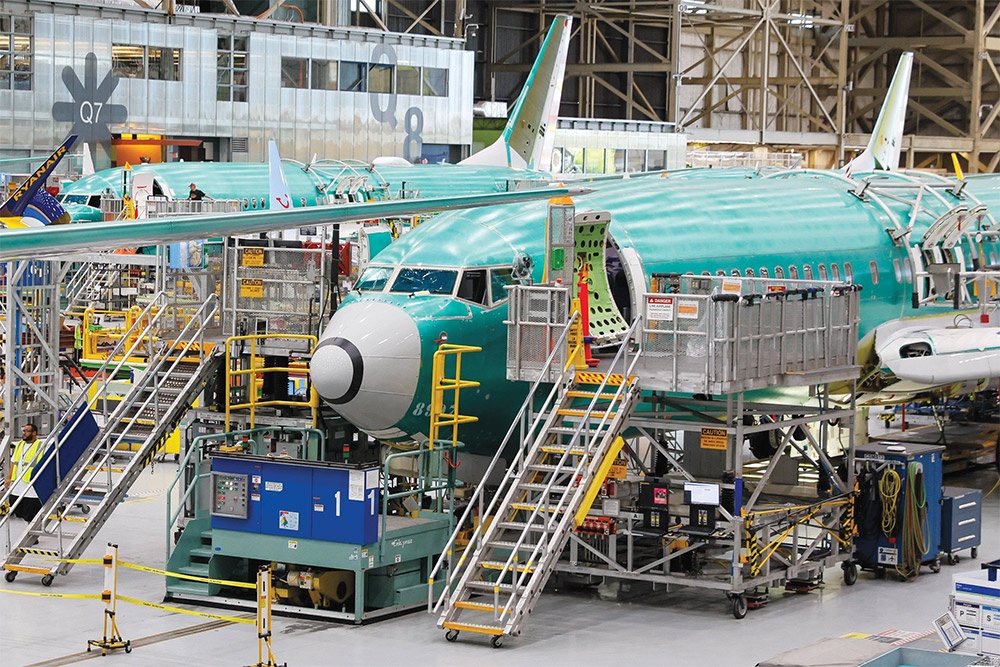 |
| Boeing is joining many countries and organisations by striving for net-zero targets |
“We’re honoured to share the steady progress we’ve made on sustainability, which will always be anchored in safety and quality,” said Boeing chief sustainability officer Brian Moran. “As we recommit to these fundamental values, it is energising to see our company’s focus on helping our industry decarbonise, while giving back to our communities and driving a culture of inclusion where everyone’s voice is heard.”
Progress points in this year’s report include 39 per cent of energy for Boeing’s operations is now sourced from renewable electricity in 2023 through a combination of direct purchases and renewable energy credits. There has been a 6.4-point increase in the percentage of its US workforce that is made up of racial/ethnic minorities, and a 1.2-point increase in the percentage of Boeing’s global workforce that is women, both since 2020.
There has also been a 100,000-hour rise in employee volunteer hours in 2023, totalling 477,000 hours invested into charitable causes worldwide. There has also been $60 million in employee donations, including a boost from the Boeing Gift Match programme to charitable organisations. 100+ influential stakeholders were engaged, and 20 major events were supported with the Boeing Cascade Climate Impact Model that analyses aviation’s strategies to cut emissions.
Boeing considers climate change to be an urgent issue, and support the goals of the Paris Agreement and encourage its value chain to do the same.
The company achieved net-zero carbon emissions (scopes 1 and 2) at manufacturing and other work sites, and in business travel (Scope 3) in 2023 for the fourth consecutive year, by expanding conservation and renewable energy procurement while securing third-party verified offsets for the remaining greenhouse gas (GHG) emissions.
Boeing strives to reduce operational GHG emissions, both during times of growth and during times of challenge by providing a 1.5 degrees Celsius pathway in support of global climate goals, and further details about Scope 3 GHG emissions strategy, focusing on use of sold products.
Boeing and the aerospace industry recognise finding solutions to decarbonise commercial aviation as an urgent challenge of time. Achieving this objective requires a portfolio of innovative solutions and collaborations that allows the sector to decarbonise. Boeing has been focused on four key areas: fleet renewal, operational efficiency, renewable energy, advanced technology – and added a focus area in 2023: market-based measures.
Boeing has been evolving its carbon management approach to an “avoid first, remove second” strategy. Avoiding first entails the prevention of carbon emissions by reducing and/or shunning those emissions at the source, for example, by continuing to invest in renewable energy and efficient infrastructure while encouraging resource conservation.
Meanwhile, increased efforts to encourage employees to use the Speak Up reporting channel resulted in a more than 500 per cent increase in the number of submissions during the first two months of 2024 compared to the same period in 2023. Following a January 737-9 accident, the company redoubled its effort to encourage employees to raise concerns about product and services safety, quality and compliance. Increased reporting is a sign of progress towards a robust reporting culture.
“We value safety above all else and our teammates take that personally - knowing every decision, every detail matters and must be done with transparency and accountability. Safety is about ensuring every person who flies on, uses, operates, designs, builds or services Boeing products gets to their destination safely,” said Elizabeth Lund, senior vice president of Quality.
Product safety depends on a culture that is rooted in transparency, accountability, and every person feeling safe and empowered to speak up when they have a concern or make a mistake affecting product safety. This reporting culture is at the heart of Boeing’s enterprise Safety Management System, which identifies hazards and mitigates risks within the systems used to design, produce and support its products and services.
Boeing’s Speak Up employee reporting channel has received thousands of submissions since it was established in 2019.
“Creating an environment where people feel comfortable and safe coming forward to address product safety, either peer to peer, or leader to team, must remain at the forefront of all that we do, because every decision matters,” said manufacturing manager Zach Jovanovich.
| Jim Hileman, chief engineer of Sustainability and Future Mobility, Boeing
The Boeing 2024 Sustainability and Social Impact Report is another demonstration of our commitment to transparency and talking about what we’re doing around sustainability, and around social aspects. Of this, for sustainable operations by reducing greenhouse gas emissions from Boeing’s operations through conservation and renewable energy, we aim to achieve 55 per cent absolute reduction in market-base greenhouse gas emissions from the 2017 base year, and achieve 100 per cent renewable energy by 2030. To do this, Boeing achieved 39 per cent renewable electricity in 2023 through a combination of direct purchases and renewable energy credits. For innovation and clean tech by enabling the transition to carbon-neutral aerospace through investments and partnerships for fleet efficiency improvements, sustainable aerospace fuel (SAF) and future platform technologies, all production commercial airplanes of Boeing will be 100 per cent SAF compatible. Boeing has already established plan for all materials, systems, and part compatibility testing required to support qualification, certification, and implementation of SAF compatibility by the end of this decade. We developed jet reference fluids composed of the simple chemical compounds found in SAF, which will help standardise testing and evaluation of how SAF interacts with airplane materials and systems. We also convened a working group, which Boeing now chairs within the International Aerospace Environmental Group, to focus on industry alignment toward 100 per cent SAF. Additionally, Boeing aims to support the commercial aviation industry’s ambition to achieve net-zero carbon emissions for global commercial aviation operations by 2050, and build and certify our first zero-emissions, electric, autonomous aircraft via Wisk. |
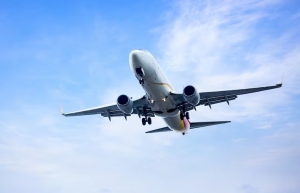 | Boeing says testing of 787 proves aircraft is safe Boeing defended its safety practices Monday, touting aircraft testing protocols as it girds for a tough congressional hearing featuring critics of the embattled aviation giant. |
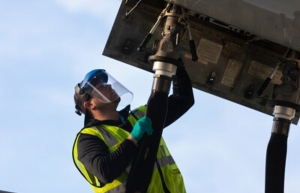 | Boeing to buying 9.4 million gallons of sustainable fuel Boeing is buying 9.4 million gallons (35.6 million litres) of blended sustainable aviation fuel (SAF) to support its 2024 US commercial operations, reducing its carbon emissions and working to help grow the supply of the fuel globally. |
 | Boeing appoints new president for Southeast Asia Boeing has named Penny Burtt as the new president of the company’s Southeast Asia business, effective July 3. |
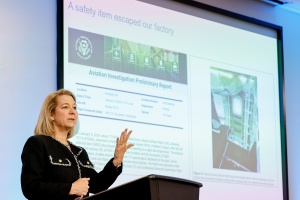 | Boeing vows to strengthen plane safety Confronting its safety challenges head-on, aircraft manufacturer Boeing has insisted that its planes are getting safer. |
What the stars mean:
★ Poor ★ ★ Promising ★★★ Good ★★★★ Very good ★★★★★ Exceptional
Related Contents
Latest News
More News
- State corporations poised to drive 2026 growth (February 03, 2026 | 13:58)
- Why high-tech talent will define Vietnam’s growth (February 02, 2026 | 10:47)
- FMCG resilience amid varying storms (February 02, 2026 | 10:00)
- Customs reforms strengthen business confidence, support trade growth (February 01, 2026 | 08:20)
- Vietnam and US to launch sixth trade negotiation round (January 30, 2026 | 15:19)
- Digital publishing emerges as key growth driver in Vietnam (January 30, 2026 | 10:59)
- EVN signs key contract for Tri An hydropower expansion (January 30, 2026 | 10:57)
- Vietnam to lead trade growth in ASEAN (January 29, 2026 | 15:08)
- Carlsberg Vietnam delivers Lunar New Year support in central region (January 28, 2026 | 17:19)
- TikTok penalised $35,000 in Vietnam for consumer protection violations (January 28, 2026 | 17:15)

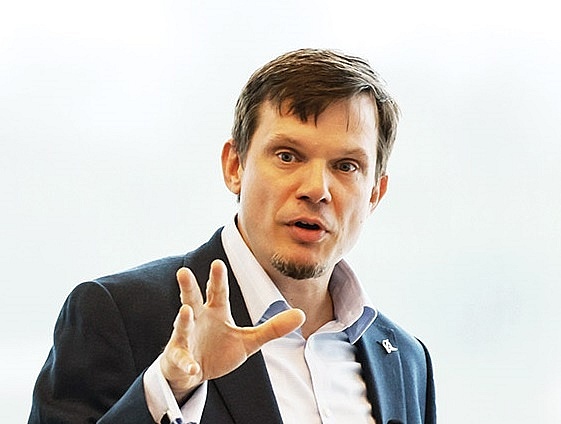
 Tag:
Tag:

















 Mobile Version
Mobile Version